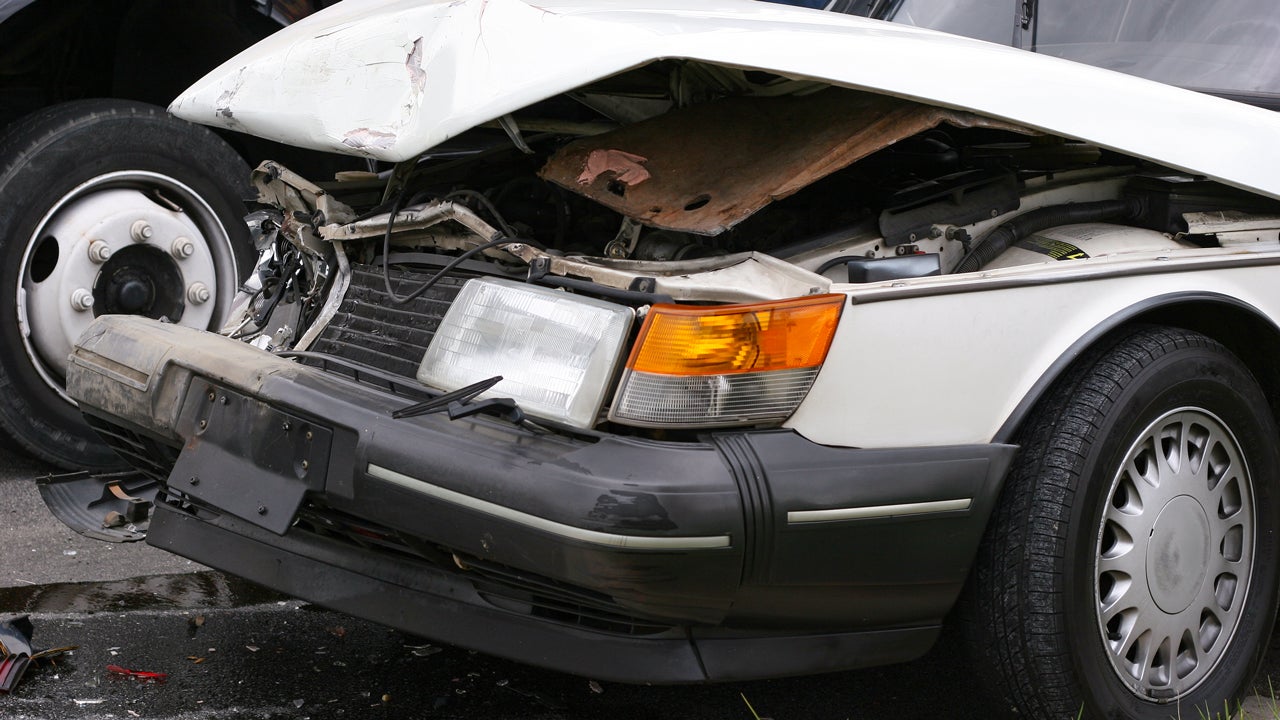If a car is declared a total loss by an insurance company, that doesn’t mean it’s automatically destined for the scrapyard. While totaled cars are marked as destroyed with a salvage title, that salvage title can be converted to a rebuilt title if somebody repairs the totaled vehicle to make it roadworthy. Buying a car with a rebuilt title could get you a good price, but it’s important to understand the implications of salvage and rebuilt titles, including potential insurance complications.
Salvage vs. rebuilt title: What’s the difference?
Salvage title and rebuilt title are both terms used to describe cars that have been declared totaled by an insurance company. The key difference is what has happened to the vehicle since. Cars get a salvage title when an insurer deems them a total loss and a rebuilt title after they are repaired to a drivable state.
What is a salvage title?
When an insurer determines that a vehicle’s repair costs outweigh its market value, the vehicle is deemed totaled. At that point, the title of the vehicle will be designated a salvage title.
Some of the most common reasons why a car might have a salvage title are accidents and weather (especially flood damage). Vehicles given a salvage title may not be safe to drive due to their extensive damage.
People may want to buy cars with salvage titles for many reasons. Some may plan to use their functional parts to repair other vehicles; others may attempt to repair the car to a drivable state.
What is a rebuilt title?
When a salvage car is repaired, it can get a rebuilt title — meaning that it is now safe and legal to drive on the road. This notifies the buyer of the previous history of the vehicle. In some states, to receive a rebuilt title, the vehicle must pass a series of tests to ensure it is safe to drive.
How does a rebuilt title affect the value of a car?
A rebuilt title will tend to decrease the value of a vehicle by a fair amount. The price drop usually ranges from 20 percent to 40 percent. After incurring such significant damage, even with effective repairs and a careful eye, it may not be possible to fully restore a totaled vehicle to its original condition. Buyers should be wary of lingering issues that may appear down the road.
Keep in mind that the 20 percent to 40 percent value reduction is an industry rule of thumb — not a strict rule. Every car is different, and the type of damage a vehicle endures could play a big role in how much its value is impacted. The value of a salvage or rebuilt title car should be assessed on a case-by-case basis.
Should you buy a car with a rebuilt title?
Many experts advise against buying a car with a rebuilt title due to the potential for mechanical issues down the road. However, every situation is different, and for some shoppers, the advantages of buying a car with a rebuilt title could outweigh the risks.
The primary risk of buying a car with a rebuilt title is safety. While the car must pass inspection to receive the rebuilt title, state inspection requirements can vary significantly, and it’s possible the vehicle could have mechanical issues that went undetected, leaving you with the potential for future breakdowns, accidents and the costs that accompany them.
For many drivers, this risk is significant enough to make the savings of a rebuilt title not worth it. However, if you’re confident in your vehicle repair skills — or if you’re looking for a project rather than a reliable daily driver — you may decide that you’re comfortable with the risk of a rebuilt title.
If you’re considering purchasing a car with a rebuilt title, do your research before you buy. Look into the type and extent of damage the vehicle sustained, the repair process and the mechanic(s) that performed it, and the inspection that the car passed in order to receive the title. You may also want to contact your insurance company to see if it is comfortable insuring a car with a rebuilt title.
Pros and cons of salvage and rebuilt titles
The pros and cons of buying a salvage or rebuilt title vehicle are fairly straightforward. While these cars typically cost less to purchase, they carry considerable safety risks and could cost more in the time and money required for ongoing maintenance and repairs.
| Pros | Cons |
| Lower purchase price | Potential for ongoing mechanical issues |
| Potential to save on financing costs | Possibility of unseen or undisclosed damage |
| May be an ideal “project car” | May have higher insurance rates compared to vehicle value |
How to get insurance with a salvage or rebuilt title
Salvage title insurance could be hard to find. Insurers that are willing to cover these types of vehicles may have certain stipulations.
Even after the necessary repairs are made, many insurers may only offer liability coverage. Some car insurance companies will not offer full coverage for salvage or rebuilt vehicles because it is challenging to assess the value of the vehicle. Furthermore, because there may be undisclosed or unseen damage in a rebuilt vehicle, insurance companies might also view this type of vehicle as more risky.
The best way to get car insurance for a salvage title is to consult a licensed agent. Once you find a willing company, you may be required to provide a statement from a professional mechanic indicating that your vehicle is in good working condition. You may also need pictures that show its present condition and repair receipts.
Frequently asked questions
Read the full article here
















